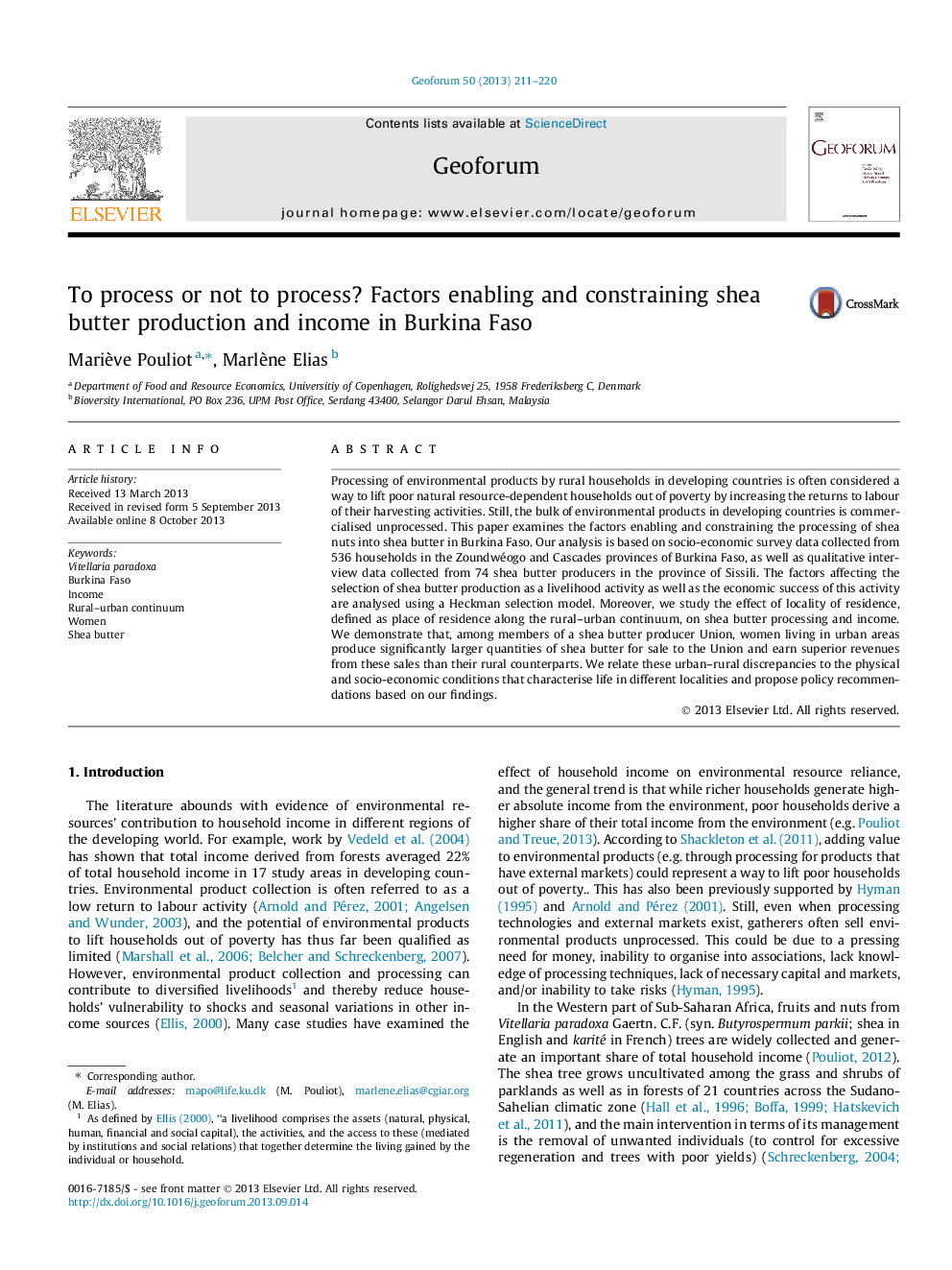| Article ID | Journal | Published Year | Pages | File Type |
|---|---|---|---|---|
| 5074134 | Geoforum | 2013 | 10 Pages |
Abstract
Processing of environmental products by rural households in developing countries is often considered a way to lift poor natural resource-dependent households out of poverty by increasing the returns to labour of their harvesting activities. Still, the bulk of environmental products in developing countries is commercialised unprocessed. This paper examines the factors enabling and constraining the processing of shea nuts into shea butter in Burkina Faso. Our analysis is based on socio-economic survey data collected from 536 households in the Zoundwéogo and Cascades provinces of Burkina Faso, as well as qualitative interview data collected from 74 shea butter producers in the province of Sissili. The factors affecting the selection of shea butter production as a livelihood activity as well as the economic success of this activity are analysed using a Heckman selection model. Moreover, we study the effect of locality of residence, defined as place of residence along the rural-urban continuum, on shea butter processing and income. We demonstrate that, among members of a shea butter producer Union, women living in urban areas produce significantly larger quantities of shea butter for sale to the Union and earn superior revenues from these sales than their rural counterparts. We relate these urban-rural discrepancies to the physical and socio-economic conditions that characterise life in different localities and propose policy recommendations based on our findings.
Related Topics
Social Sciences and Humanities
Economics, Econometrics and Finance
Economics and Econometrics
Authors
Mariève Pouliot, Marlène Elias,
